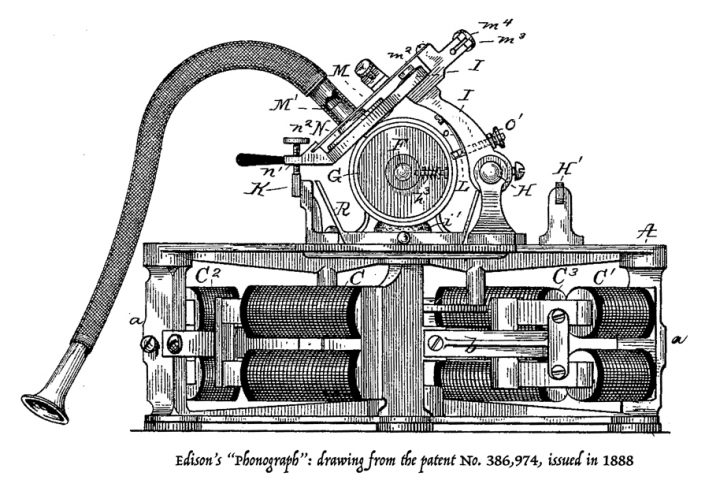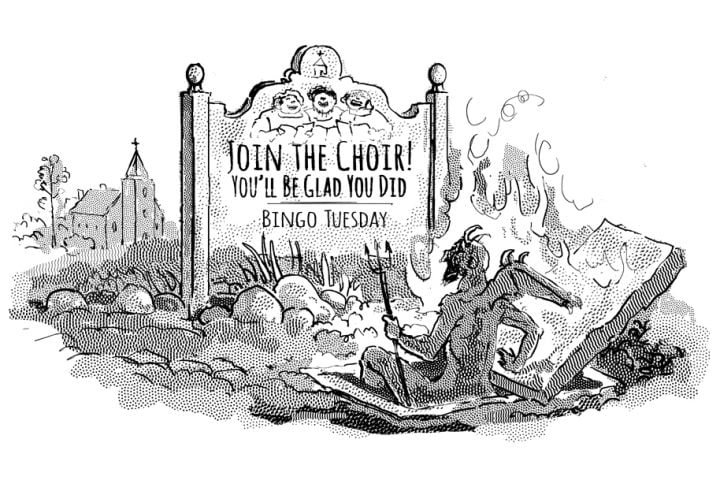Books Reviewed
In his published works Leo Strauss repeatedly depicts himself as a mere student or interpreter of the true philosophers. He did the same in comments to students, whom he prohibited from writing on his own works. In a lecture on Plato’s Gorgias he went so far as to refer to himself and his fellows as “essentially mediocre men.”
It is hard to imagine thinkers such as Martin Heidegger or Jean-Paul Sartre or, in our own day, Jacques Derrida or Martha Nussbaum evincing similar humility. That said, Strauss was famous for irony. On this point, his restraint recalls Socrates’ observation at the beginning of Plato’s Sophist that philosophers appear sometimes as sophists, sometimes as statesmen, and sometimes as completely mad. Strauss’s student Seth Benardete comments on this passage, “It would be very easy to discern the false philosopher if only he proclaimed himself to be a philosopher.”
Heinrich Meier, director of the Carl Friedrich von Siemens Foundation and professor of philosophy at the University of Munich, holds that Strauss is a philosopher who deserves and rewards the same pondering, “day and night,” as other philosophers. Meier, the world’s foremost Strauss scholar, came to Strauss’s work through his own reading rather than as a member of Strauss’s “school,” making his perspective unique. As such, he is well positioned to say of Strauss what the man would not say of himself. And Meier’s calling out of Strauss as a philosopher is not merely a correction of the historical ledger. It contains an understanding of what it means to be a philosopher, an understanding that Political Philosophy and the Challenge of Revealed Religion shares and explores with great subtly and daring.
* * *
This exploration begins for Meier with political philosophy. The first chapter of three in this book asks, “Why Political Philosophy?” (In almost exactly the same form it serves as the concluding chapter in Meier’s 2006 book, Leo Strauss and the Theologico-Political Problem.) Meier takes his orientation from what he sees as Aristophanes’ friendly critique of the pre-Socratic Socrates: he 1) lacks self-knowledge; 2) cannot defend philosophy politically; 3) cannot defend philosophy rationally; and 4) lacks knowledge of political things. Meier argues that Socrates responds by his “turn,” which leads him to question not just the political things but more specifically the things that human beings believe “noble and good,” or morality.
This questioning produces a political defense of philosophy, as in Socrates’ jocular self-portrayal as the gadfly stinging the sleepy horse of Athens with the query, “What is virtue?” It also requires relentless examination of morality’s relation to revelation or “theologico-political claims,” the refutation of which justifies, nay, makes necessary philosophy. Meier calls this moment “the decisive insight inherent in the Socratic turn.” Together these moments in Socrates’ response originate “political” philosophy and make it “the part of philosophy in which the whole of philosophy is in question” and, thereby, the locus of the philosopher’s self-knowledge. The “political” in political philosophy indicates the inquiry’s context rather than its content. The aim is less to understand political matters, though this is a beneficial byproduct, than to comprehend and effect the grounding of philosophy itself.
Different political situations will require that different philosophers give unequal weight to these moments in political philosophy. But the core structure or dynamic, according to Meier, remains consistent. The remaining two chapters seek to demonstrate this claim. Through a close reading of Strauss’s Thoughts on Machiavelli, Chapter Two offers a dense and careful argument befitting Strauss’s dense, careful book. Implicitly seconding the judgment of others (such as Steven Lenzner in these pages; see “Guide for the Perplexed,” Spring 2007), Meier shows that its title and epistle dedicatory are among the characteristics indicating that Thoughts on Machiavelli holds a uniquely high place in Strauss’s work. Significantly, it is the only book of Strauss’s maturity that is neither a commentary nor a collection of lectures or articles.
* * *
One of Strauss’s great contributions to understanding Machiavelli and other thinkers is his attentiveness to how great writers allow themselves to be misunderstood. Meier shows that Strauss does the same thing. Strauss allows readers to conclude that we must sharply distinguish “modern” from “classical” political philosophy, with Machiavelli as the pivot point, the founder of the modern enterprise. Machiavelli, it would seem, almost single-handedly “lowered the bar” not just of expectations for politics but also of understanding human things. Above all, he demanded that man be understood not in the light of his “high” capacities but from the perspective of his “low” origins, thereby paving the way for Thomas Hobbes and John Locke’s “state of nature” teachings, as well as the reductionism of Jean-Jacques Rousseau and others. Machiavelli was the instigator of a movement, the first “youth movement,” of aspiring princes who would conquer nature, reclaim the Garden of Eden on earth, and make revealed religion irrelevant.
As powerful as this teaching is, Meier argues that it does not represent Strauss’s true thought. Instead, Meier claims, Strauss read Machiavelli’s calls for “good arms” as a call for “the young,” who wish to know, to provide themselves with good reasons to defend their life, i.e., the life of philosophy. The antagonist is revelation but the fight is on behalf of the elite, not the masses. The battle is private, not public.
Accordingly, the “culmination” of Machiavelli and Strauss’s insights concern the status of the Biblical God and the supposed virtue of humility. Christian humility seems most opposed to the classical virtue of magnanimity or greatness of soul. Our world is heir to two conflicting traditions. Yet rather than appeal directly to the classical alternative, Machiavelli extols “humanity.” He thereby publicly allies philosophy with politics for the relief of man’s estate. And by seeming to exclude any virtue that extends beyond the human, he precludes religion from ever recapturing our aspirations.
Strauss implies, however, that even while praising humanity Machiavelli himself demonstrates magnanimity in this act of re-founding philosophy. In the world shaped by Machiavelli’s public teaching, Strauss does the same thing in a different way, by encouraging his students to reengage the “tradition” of “classical political philosophy” from which Machiavelli supposedly broke. Philosophy must renew itself by recovering revelation, the antagonist whose challenge Machiavelli’s public success has so muted.
* * *
In short, through his reading of Strauss’s reading of Machiavelli, Meier presents Strauss as both a discoverer and an innovator. Strauss reveals and then conceals a Machiavelli who stands in continuity rather than conflict with the past. And Strauss follows Machiavelli’s example by proposing a major change in the way we approach this past that Machiavelli has seemingly superseded. Whereas Machiavelli’s “new modes and orders” cloak the continuity of his intention, Strauss’s conservatism cloaks his innovation.
The magnanimity of the founder looms large as well in Chapter Three, which relies on Meier’s interpretation of Rousseau’s Social Contract, a work that looks ahead to modern liberalism and back to Machiavelli. Meier argues that by revealing the principles of political right, Rousseau also shows the limits of politics. The Social Contract, then, is not only or primarily an inquiry into the political things but rather a political defense of philosophy. The most revealing actor in this defense is the “grand legislator,” whom Rousseau treats as necessary to politics but outside of politics, the need for and status of the legislator underscoring the insuperable tension between politics and philosophy. Likewise, in Rousseau’s famous “civil religion,” wisdom and omnipotence are pointedly omitted from the account of the deity’s attributes. Rousseau’s work, too, creates space for philosophy, for his turn later in life to reveries on nature and himself.
This chapter on Rousseau provides a helpful corrective to the temptation to understand Strauss, Machiavelli, or any other philosopher as, at his highest, a legislator. We can see in Meier’s account three ascending levels of the activity of the philosopher as philosopher. First, the philosopher as legislator defends a place for philosophy in the political community by demonstrating its goodness to those who rule. Second, the philosopher as educator edifies, but does more than edify, the most promising young people within the community. Finally, the philosopher as inquirer, observer, and “theoretician” renews the dialogue about the highest things—with himself and others like himself. The first two activities are exoteric and political (in the term’s traditional sense), the subject of the philosopher’s “teaching” broadly understood. The third is trans-political, the subject of the philosopher’s “thoughts.” As the lead character observes even in the most political of Plato’s dialogues, human things are of little seriousness compared to the God.
* * *
Meier’s is one of the most thoughtful voices in the ongoing debate over the focus of Strauss’s thought, which he clearly locates in the polarity of “Athens and Jerusalem.” His efforts also point forward to enduring questions. What is the difference between refuting certain believers who claim to hear the call of revelation, and dismissing revelation itself? Can philosophy ever bridge that gap? If not, does it not always lie open to a new revelation by the God whose very name is “I will be what I will be”? If so, then is philosophy justified in its claim that the one thing needful is knowledge, not obedience? While philosophers’ eros keeps them from bowing in awe, they may also need to keep their thumos from persuading them that they have overcome the challenge. There appears to be great prudence in Strauss’s repeated emphasis on the endurance of questions rather than answers, and his repeated description of philosophy itself as the attempt to replace opinions about the whole of things with knowledge of the whole.
The situation Strauss faced, and which we face today, is not that which faced Machiavelli or even Rousseau. They confronted a revealed faith that could potentially extend its call for obedience to all lands and into the deepest recesses of the heart, leaving no room for philosophical inquiry. Thanks in part to their efforts, the threat to philosophy today (at least in the West) does not come from “the priests.” Indeed, insofar as faith remains directed towards a more-than-worldly end, it is potentially philosophy’s ally.
Our challenge now comes from “the sophists,” who penetrate the recesses of the heart with the belief that the human things are completely sufficient. Man, not God, is the measure—a position held not just by Protagoras but by Heidegger, Richard Rorty, and many others. Meier’s continuation of Strauss’s work is valuable for showing that such antagonists also leave no room for philosophy. Indeed, by making religion, morality, and with them the claim that a certain way of life is “best” seem absolutely unbelievable, modern sophistry places even more obstacles in the way of the ascent to philosophy.
* * *
A work as carefully written as Political Philosophy and the Challenge of Revealed Religion deserves far more attention than a short review can bestow. I offer just one more observation, in the spirit of Meier’s approach. By organizing the body of his book into three chapters—the first of which has one part, the second three parts and an “epilogue,” and the third chapter four parts—Meier places his “Epilogue” on Strauss’s Thoughts on Machiavelli at the center. This epilogue briefly considers the chapter that Strauss contributed in 1972 to the second edition of the History of Political Philosophy. In this restatement on Machiavelli, Strauss emphasizes that Machiavelli and Socrates stand united, against the “sophists” in particular, as rejecting any sort of claim of “omnipotence.” (The sophists, ancient and modern, revere the supposed “omnipotence” of human speech.) To return to where we began, with Plato’s Sophist, Strauss seems to have meditated on Socrates’ bold definition there of the philosopher as “a certain refutative god.” As a “god” he puts into question the imagined deities. But as refutative he never does himself the injustice of worship.




